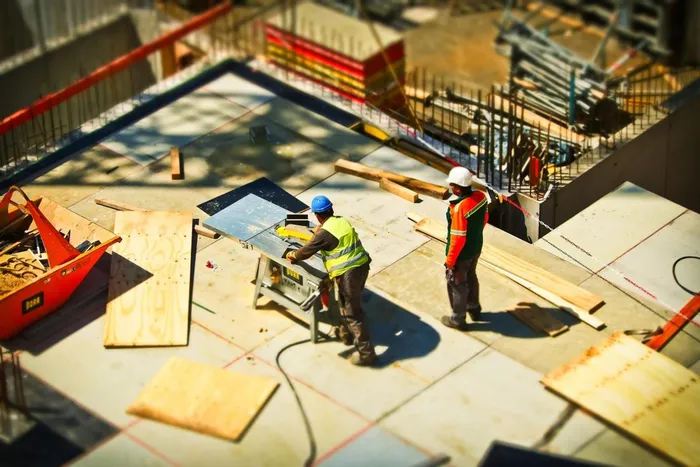Sector is ready to go back to work

The construction industry is ready and prepared to reopen and has been so since the introduction of level 4, says Master Builders South Africa’s John Matthews.
Not only is it ready to reopen but it can do so with safety measures and protocols in place to ensure protection of employees both in offices and on construction sites.
“Our sector has always operated under very strict occupational health and safety regulations which are now augmented by Covid-19 safety protocols and commitments,” he says.
David Sedgwick of Horizon Capital says some of the key precautions being put in place include arranging private transport for workers; educating all staff on health and safety procedures; ensuring PPE is available; screening all employees on arrival and introducing emergency procedures should a staff member test positive for Covid-19.
“One cannot compromise on the safety of staff, so finalising these protocols has been the top priority.” With this comes the responsibility of keeping detailed records of all site visitors and staff, including questionnaires and temperature scans, adds the Western Cape Property Development Forum’s Deon van Zyl.
“It will be vital for contractors to fully educate their staff and labour on keeping social distancing in place; conducting regular hand washing and sanitising and making them aware of the need to proactively report if staff and labour are not feeling entirely well,” he says.
CAREFUL Strict safety measures will be place to protect construction employees once the industry reopens. Picture: Jason Goh
Where to start
While all incomplete projects have to be finished, new projects are needed to sustain the construction industry, says MBSA’s John Matthews. “We are coming from a difficult era, with not enough work, due to our country’s poor economic growth. We now have a chance to use Covid-19 to address our poor infrastructure development and create more opportunities and jobs.”
But over the short term, says David Sedgwick of Horizon Capital, the prospects of large new projects are “rather slim” and will probably gain some momentum only when confidence levels pick up, while may only be in the middle of next year.
“For many current projects, the losses will never be recouped, given that often leases were signed or apartments sold at fixed prices when the development originally launched. In such cases the interest bill has been running and the project falling further and further behind, effectively solidifying the losses.”
Developments which were already in progress prior to the lockdown will probably be prioritised in order to finish them to either rent or transfer to end purchasers, he says. This will enable developers to settle their borrowings and bring in some cash flow.
“I don’t think it’ll be business as usual and suspect a number of developments will be shelved until stability returns and one can assess what a restructured environment and demand looks like,” Sedgwick says.
Construction sites that were active before the lockdown are being relied upon to lead the charge, says the WCPDF’s Deon van Zyl. “Thereafter, we look primarily to the public sector to fast track the release of new work... “Private sector projects will follow as confidence in the economy returns.”
The future of development
The construction industry will see a new era in which the market reconsiders its practical needs, and with this, the Western Cape Property Development Forum’s Deon van Zyl foresees a growth in smaller residential units, a growth in the rental market and a greater emphasis on communal space and urban offerings.
The development industry will try to understand new working and living patterns and will also look at the environment within which development takes place and try to cut out unproductive factors.
“The new way of doing business will force various service providers – such as local authorities, the finance industry and built-environment professions – to adapt to new demands and lateral thinking by developers trying to interpret the market.
“In time, this may include new construction methods and innovation in materials used, on the one hand, and the seeking of new development-friendly environments by clients and developers alike. I expect the market to migrate to geographical areas where innovation is accepted and encouraged.”
Ultimately, the market will place a greater emphasis on lifestyle and health factors which will drive innovation and creativity, Van Zyl says. He explains that, although urbanisation will continue, those with money, as well as those who have embraced a remote-working scenario, could look outside conventional urban nodes to calmer and more relaxing environments to support their businesses.
“We may see an era of positive growth in smaller municipalities surrounding the metropolitan areas.”
*Subscribe to our Property360 weekly newsletter
Related Topics: